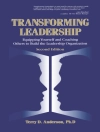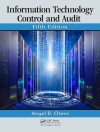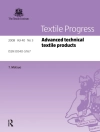Over the last decade, the concept of dark tourism has attracted growing academic interest and media attention. Nevertheless, perspectives on and understanding of dark tourism remain varied and theoretically fragile whilst, to date, no single book has attempted to draw together the conceptual themes and debates surrounding dark tourism, to explore it within wider disciplinary contexts and to establish a more informed relationship between the theory and practice of dark tourism. This book meets the undoubted need for such a volume by providing a contemporary and comprehensive analysis of dark tourism.
Tabella dei contenuti
Contributors
1. Shedding Light on Dark Tourism: An Introduction – Richard Sharpley
2. Making Absent Death Present: Consuming Dark Tourism in Contemporary Society – Philip R. Stone
3. Dark Tourism: Mediating Between the Dead and the Living – Tony Walter
4. Dark Tourism: Morality and New Moral Spaces – Philip R. Stone
5. Purposeful Otherness: Approaches to the Management of Thanatourism – Tony Seaton
6. (Re)presenting the Macabre: Interpretation, Kitschification and Authenticity – Richard Sharpley and Philip R. Stone
7. Contested National Tragedies: An Ethical Dimension – Craig Wight
8. Dark Tourism and Political Ideology: Towards a Governance Model – Richard Sharpley
9. ‘It’s a Bloody Guide’: Fun, Fear and a Lighter Side of Dark Tourism at The Dungeon Visitor Attractions, UK – Philip R. Stone
10. Battlefield Tourism: Bringing Organised Violence Back to Life – Frank Baldwin and Richard Sharpley
11. ‘Genocide Tourism’ – John Beech
12. Museums, Memorials and Plantation Houses in the Black Atlantic: Slavery and the Development of Dark Tourism – Alan Rice
Life, Death and Dark Tourism: Future Research Directions and Concluding Comments – Richard Sharpley and Philip R. Stone
References
Index
Circa l’autore
Philip R. Stone is Director of the Institute for Dark Tourism Research (i DTR), University of Central Lancashire (UCLan), Preston, UK. He is the Editor of the International Journal of Dark Tourism Studies.












